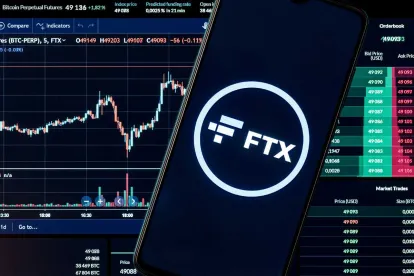Churchill is credited with saying “Never let a good crisis go to waste” at the end of WWII in reference to lessons learned in rebuilding the post-war world. The rolling collapse in crypto and digital assets’ markets, and particularly a series of criminal complaints and enforcement actions in the wake of FTX’s and its sister company Alameda’s bankruptcies, are one such crisis that is testing and providing valuable guidance on various Commodity Futures Trading Commission (“CFTC”) enforcement theories under the Commodity Exchange Act (“CEA”). One such cause of action, the aiding and abetting in commission of fraud, was recently articulated in the CFTC v. Nishad Singh proposed consent order (“Consent Order”).
On February 28, the U.S. District Court for Southern District of New York entered a proposed consent order relating to CFTC’s charges of fraud by manipulation and aiding and abetting fraud relating to digital asset commodities against Nishad Singh, who was a co-owner and Director of Engineering of FTX.
Specifically, CFTC’s charges explain that: “Singh was responsible for creating or maintaining various undisclosed components in the code underlying FTX that, operating together with other features, granted Alameda functionalities that allowed it to misappropriate FTX customer assets. Among other things, these features in the FTX code favored Alameda and allowed it to execute transactions even when it did not have sufficient funds available, including, critically, a ‘can withdraw below borrow’ functionality that allowed Alameda to withdraw billions of dollars in customer assets from FTX.”
With respect to aiding and abetting liability, the court specifically states: “Defendant Singh willfully aided, abetted, counseled, commanded, induced, procured and/or committed acts in combination or concert with FTX, Alameda, and/or Bankman-Fried that constituted violations of [the CEA and CFTC regulation § 180.1]. Therefore, as a result of the conduct alleged in the Complaint, pursuant to Section 13(a) of the Act, 7 U.S.C. §13c(a), Singh is liable for FTX, Alameda, and Bankman-Fried’s violations of [the CEA and CFTC regulations].”
CFTC regulation § 180.1 was promulgated after the Dodd-Frank Act and is analogous to its securities predecessor Rule § 10b-5 under Securities Exchange Act of 1934.
The following conclusions can be drawn as to what facts the CFTC would look for in finding aiding and abetting liability:
-
existence of a scheme to defraud (i.e., illegal use of customer assets) the markets in “commodities” (i.e., crypto);
-
knowledge of the scheme (i.e., Singh was a co-owner and a senior executive of FTX);
-
associating and participating in the fraud (i.e., deliberately wrote the code to make the commission of fraud possible);
-
technology was specifically used to perpetrate the fraud (i.e., the preferential treatment of Alameda);
-
the liability will apply equally to instances of fraud involving derivatives (i.e., swaps, futures, or options) and commodities (i.e., crypto and other digital assets).
It is not the first time the CFTC has charged aiding and abetting liability (e.g., an attorney who had assisted in perpetrating illegal metals transactions or a software developer).
Conversely, it is clear that in merely acting as a contractor and a technology provider without the actual knowledge (or a duty to inquire) as to the purposes of the scheme, such liability will not be asserted.





 />i
/>i

